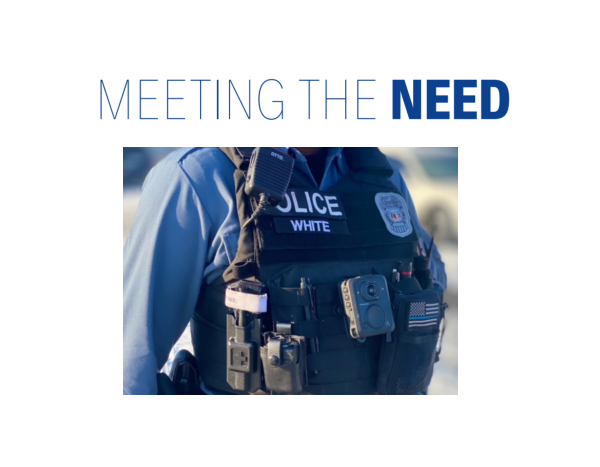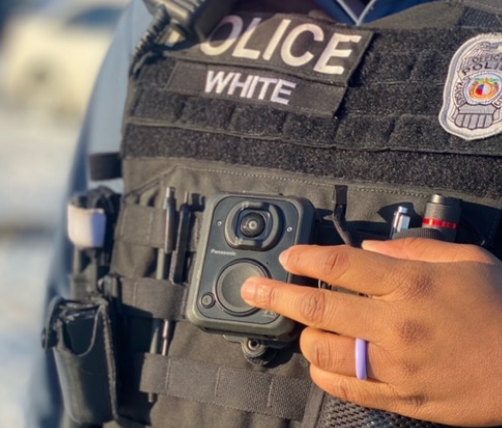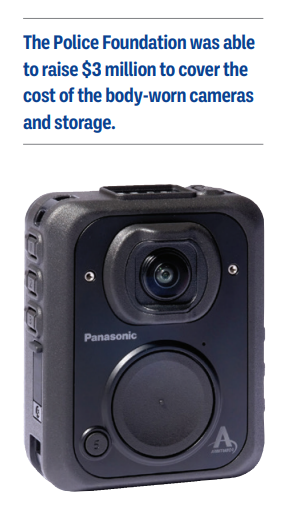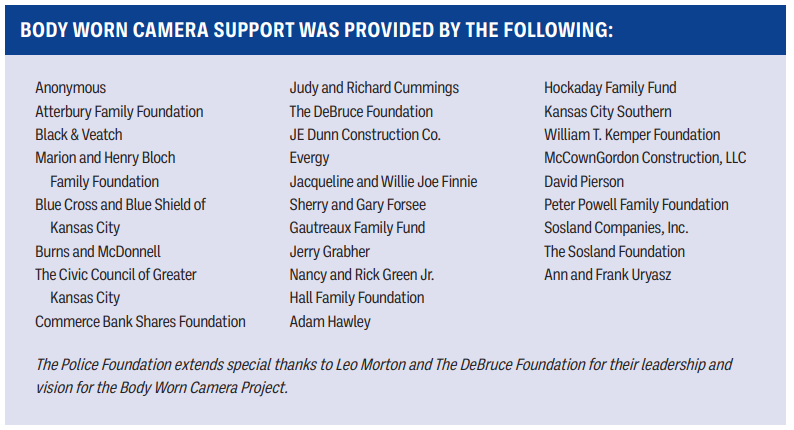
When the community demanded increased accountability from its law enforcement, the Police Foundation of Kansas City stepped up to help. For many years, KCPD has requested funding to purchase body-worn cameras and video storage in their annual budget allocation from city government. As civil unrest erupted in Kansas City and throughout the country following the Memorial Day 2020 death of George Floyd after his encounter with Minneapolis police, the demands from the community for body-worn cameras for KCPD grew much louder.
Local philanthropists listened, and the Police Foundation was able to engage community donors to meet the need for this equipment. KCPD Chief Richard Smith announced at the June 3, 2020, Unity March on the Country Club Plaza that private donors would fund the purchase of body-worn cameras.
“We have been listening to the community’s call for change,” Chief Smith said at the event. “The community has repeatedly asked for body cameras. I am pleased to announce that concerned members of our community have generously donated to allow us to begin to purchase these cameras.”
Although the funding for body worn cameras was not yet available, department leaders have been planning their implementation for several years. As KCPD’s in-car recording systems – or dash cams – reached the end of their lives, the Fiscal Division issued a request for qualifications to manufacturers of both dash cam and body worn camera systems. They wanted a dash cam system that would seamlessly integrate with a future body-worn camera system. Through the competitive bid process, KCPD selected Turn Key Mobile, which offered Panasonic products. The replacement of the dash cam system was funded by previous allocations from the Public Safety Sales Tax, but there was not enough for body-worn cameras.
The Police Foundation was able to raise $3 million to cover the cost of the body-worn cameras and storage. With those funds, the Department was able to purchase 815 body-worn cameras, enough for all patrol officers on varying shifts.

The Department also was able to use that funding as leverage to win an $800,000 federal grant to purchase additional body-worn cameras for investigative personnel.
KCPD will have all patrol officers outfitted with the body-worn cameras by the end of March 2021. The nine months from funding announcement to complete implementation is a remarkably fast roll-out for a body-worn camera program, compared to other large law enforcement agencies nationwide.
The quick turn-around time does not mean, however, that any corners were cut. Major Paul Luster, KCPD’s body-worn camera project leader, convened a group of stakeholders from all areas of the city to assist in the equipment selection and policy development of the body-worn cameras. This group included municipal, state, and federal prosecutors, philanthropists and community stakeholders. KCPD also consulted best practices and policies for bodyworn cameras from other law enforcement agencies.
As far as KCPD is aware, this innovative public private partnership is the first of its kind in the nation that is now underway thanks to the Police Foundation of Kansas City.
“The KCPD has long recognized the value of body cameras in policing to ensure accountability and has been working to implement them,” Chief Smith said. “We are so pleased that members of our community have stepped up and generously agreed to meet the needs of our city. We hope this will increase community trust and transparency.


